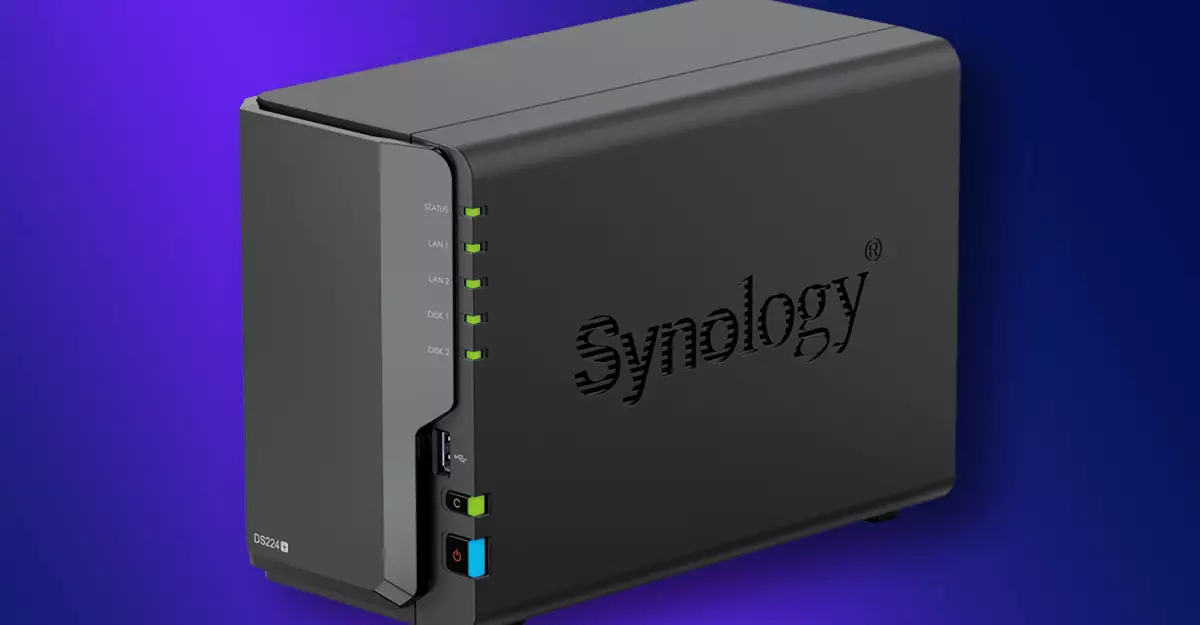In the constantly evolving world of network-attached storage (NAS) systems, the recent announcement by Synology regarding new restrictions on third-party hard drives has raised eyebrows among consumers and tech enthusiasts alike. The company has confirmed that starting in 2025, their upcoming Plus Series models will only support Synology-branded drives and those they explicitly certify, creating a significant shift in how users can manage and expand their storage solutions. While Synology maintains that this change is rooted in enhancing reliability and compatibility, it inevitably constrains consumer choices, sparking a debate over the balance between user empowerment and corporate control.
The Implications for Existing Users
One bright spot in the midst of these forthcoming restrictions is that current Synology NAS owners need not worry; their devices will remain unaffected. This temporary relief is, however, overshadowed by the looming question: how will future users navigate the limited options presented by these new models? Outgoing generation devices will continue to allow broader compatibility with third-party drives, but the transition into the next era of Synology NAS may force potential buyers to recalibrate their expectations and budgets. The implications are particularly pressing for everyday users who depend on versatile and cost-effective storage solutions.
Perceived Benefits vs. Consumer Rights
Synology argues that these restrictions aim to minimize compatibility issues and enhance the overall performance and reliability of their systems. By adhering to a strict validation process for drives that pair with their NAS products, the company claims to reduce the risk of drive failure—a concern that resonates with users who have experienced data loss. However, this argument brushes over a critical point: the core of NAS technology is its flexibility and accessibility. Many users value the ability to choose from a wide array of drives, often seeking budget-friendly or high-capacity options that might not carry the Synology label. When viewed through this lens, Synology’s decision can seem more like a power play than a genuine improvement in user experience.
The Cost of Compatibility
One cannot overlook the financial ramifications of Synology’s new policy. A more limited selection of certified drives could lead to inflated prices, as consumers will be compelled to choose from a narrower range of products. This monopolistic tendency can alienate budget-conscious users who rely on competitive pricing within the hard drive market. Furthermore, the potential for ongoing compatibility issues with non-certified drives—despite Synology’s assertions—presents a familiar yet frustrating scenario for technology consumers: a tussle between optimal performance and affordability.
Comparative Industry Perspectives
How does Synology’s approach compare to industry norms? While it is not uncommon for tech companies to restrict drive compatibility to some degree, it is critical to analyze the extent and transparency of such measures. For instance, leading printer manufacturers have famously employed aggressive tactics to thwart the use of third-party ink, significantly limiting user choice while boosting their own sales. Synology’s policy, although less draconian, still introduces a layer of complexity that may deter users from engaging fully with their products. Transparency in the certification process, along with a clearly communicated rationale for these restrictions, will be crucial if Synology hopes to maintain a loyal user base.
The Community Response
The community’s response to Synology’s announcement has been a mixed bag. Some users express understanding, citing the concerns of data integrity and hardware longevity that the company seeks to address. On the other hand, a vocal faction has raised concerns about the stifling of innovation through corporate control over hardware choices. Users who were once loyal advocates for the brand may find themselves reconsidering their options, especially if competitors leverage this opportunity to offer more flexible and cost-effective solutions in the NAS market.
Synology’s upcoming restrictions on third-party drives are a double-edged sword, intended to bolster system reliability at the potential expense of user choice and economic accessibility. As the company moves forward, it will be essential for them to stay attuned to the needs and sentiments of their consumer base, balancing corporate interests with the fundamental ethos of NAS technology: empowerment through choice.

